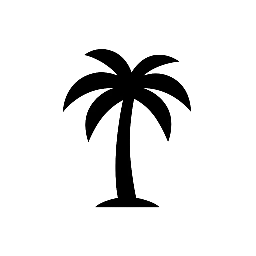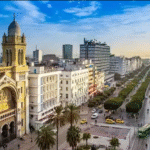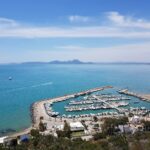Tunisia has become an increasingly popular destination for expatriates and foreign residents due to its affordable cost of living, Mediterranean climate, and growing economy. However, navigating the healthcare system can be challenging, especially for those unfamiliar with local options. While public healthcare is available, many foreigners prefer private healthcare for its higher standards, shorter wait times, and multilingual staff.
In this guide, we’ll explore private healthcare services in Tunisia, focusing on the best options for resident foreigners. We’ll also cover costs, insurance, and key facilities to help you make informed decisions about your medical care.
Why Choose Private Healthcare in Tunisia?
1. Higher Quality of Care
Public hospitals in Tunisia often face overcrowding and limited resources. In contrast, private clinics and hospitals provide better-equipped facilities, modern technology, and more personalized care. Many private doctors in Tunisia have trained abroad, ensuring international standards of treatment.
2. Shorter Waiting Times
Public hospitals can have long queues for consultations and procedures. On the other hand, private healthcare facilities offer faster appointments, reducing delays for diagnostics and treatments.
3. Multilingual Staff
Many private hospitals and clinics in Tunisia employ English, French, and sometimes German-speaking doctors and staff. This makes communication easier for foreigners who may not be fluent in Arabic.
4. International Insurance Acceptance
Most private hospitals in Tunisia accept international health insurance, making it easier for expats to access care without upfront payments. However, it’s always best to confirm coverage with your provider beforehand.
Top Private Hospitals and Clinics for Foreigners
1. Clinique Les Oliviers (Tunis)
One of the most reputable private hospitals in Tunisia, Clinique Les Oliviers offers a wide range of specialties, including cardiology, orthopedics, and gynecology. Many doctors here speak French and English.
- Consultation fee: ~150-300 TND (€45-90)
- Basic blood test: ~100-200 TND (€30-60)
- MRI scan: ~800-1,200 TND (€240-360)
2. Clinique Hannibal (Tunis)
Known for its modern facilities and highly trained specialists, Clinique Hannibal is a preferred choice for expats. It provides emergency care, surgery, and specialized treatments.
- General doctor visit: ~120-250 TND (€35-75)
- Dental filling: ~200-400 TND (€60-120)
- Childbirth (natural delivery): ~3,000-5,000 TND (€900-1,500)
3. Polyclinique Internationale Ibn Sina (Sousse)
Located in Sousse, this clinic is popular among foreigners living in coastal areas. It offers cardiology, neurology, and emergency services with multilingual staff.
- Specialist consultation: ~180-350 TND (€55-105)
- Ultrasound: ~200-300 TND (€60-90)
- Minor surgery: ~1,500-3,000 TND (€450-900)
4. Clinique Pasteur (Tunis)
A well-known private hospital with advanced medical technology, Clinique Pasteur is ideal for complex treatments and surgeries.
- Cardiology consultation: ~200-400 TND (€60-120)
- Knee replacement surgery: ~12,000-18,000 TND (€3,600-5,400)
Cost of Private Healthcare in Tunisia
Compared to Europe or North America, private healthcare in Tunisia is much more affordable, though prices vary depending on the facility and treatment. Below is a general price guide:
| Service | Cost (TND) | Cost (EUR) |
|---|---|---|
| General doctor visit | 120-300 TND | €35-90 |
| Specialist consultation | 200-500 TND | €60-150 |
| Dental cleaning | 150-300 TND | €45-90 |
| MRI scan | 800-1,500 TND | €240-450 |
| Childbirth (C-section) | 4,000-7,000 TND | €1,200-2,100 |
| Hip replacement surgery | 15,000-25,000 TND | €4,500-7,500 |
Note: Prices can vary based on the doctor’s experience and the clinic’s reputation.
Health Insurance for Foreigners in Tunisia
1. Local Health Insurance
Some expats opt for Tunisian private health insurance, which is cheaper than international plans. Companies like Allianz Tunisia and GAT Assurances offer coverage for private hospitals.
2. International Health Insurance
If you prefer global coverage, Cigna Global, Allianz Worldwide Care, and AXA PPP are popular choices. These plans often include medical evacuation, which can be crucial in emergencies.
3. Travel Insurance (Short-Term)
For temporary residents, travel insurance with medical coverage (e.g., SafetyWing, World Nomads) can be a cost-effective solution.
Tips for Foreigners Using Private Healthcare in Tunisia
- Check Doctor Credentials – Many private doctors have international training, but it’s wise to verify their qualifications.
- Ask for English/French-Speaking Staff – Most upscale clinics have multilingual personnel.
- Keep Emergency Numbers Handy – Private ambulance services are available (e.g., SAMU: 190).
- Compare Prices – Some clinics charge higher fees for foreigners, so get multiple quotes.
- Carry Cash or Credit Cards – While insurance is accepted, some smaller clinics prefer direct payment.
Final Thoughts
Tunisia’s private healthcare system offers high-quality, affordable medical services for foreign residents. With modern facilities, multilingual doctors, and reasonable prices, expats can access excellent care without the long waits of public hospitals.
Before choosing a provider, compare costs, check insurance coverage, and read patient reviews. Whether you need routine check-ups or specialized treatments, Tunisia’s private healthcare sector has reliable options to keep you healthy.
Would you like recommendations for specific specialists or additional cost breakdowns? Let us know in the comments!



